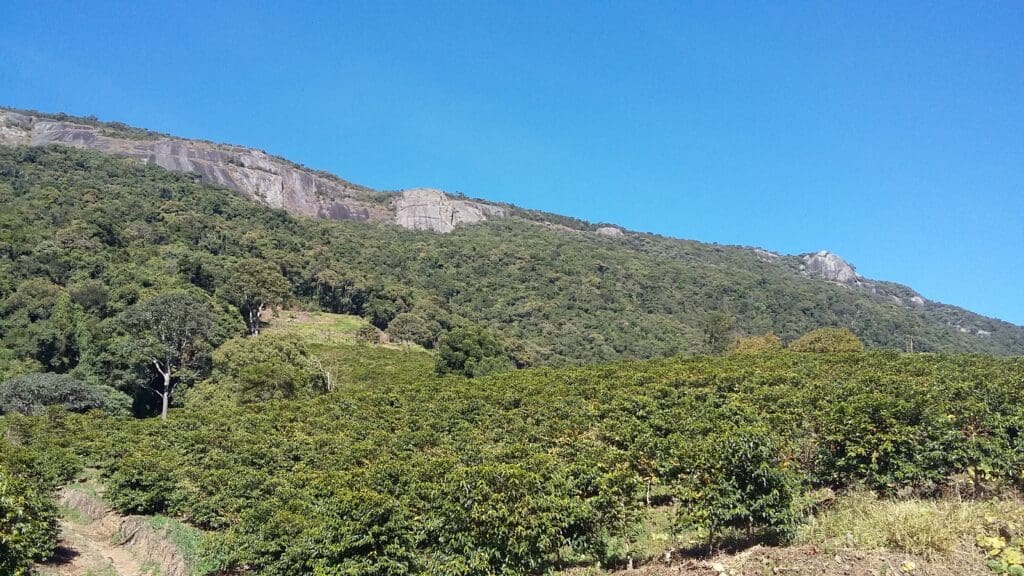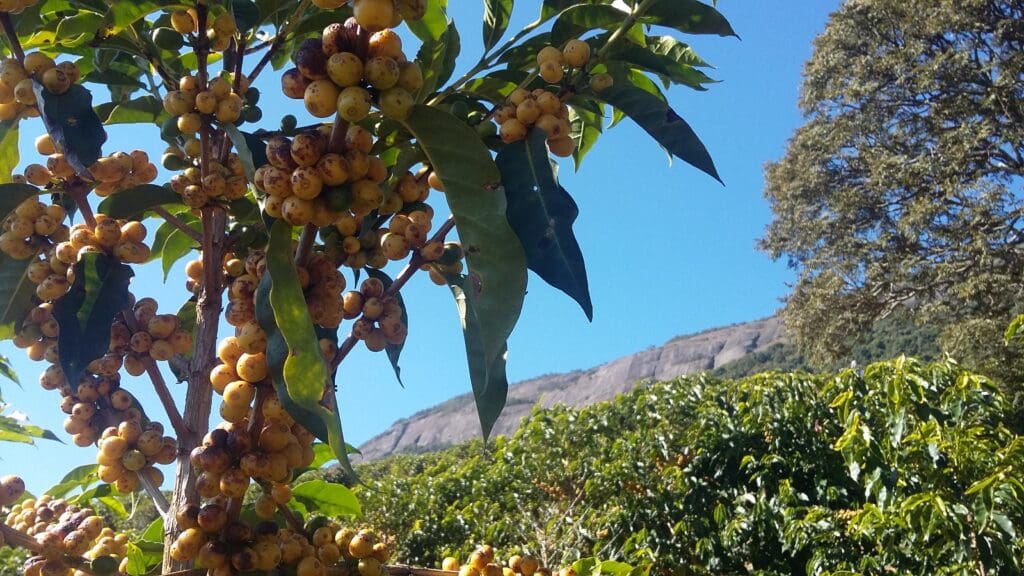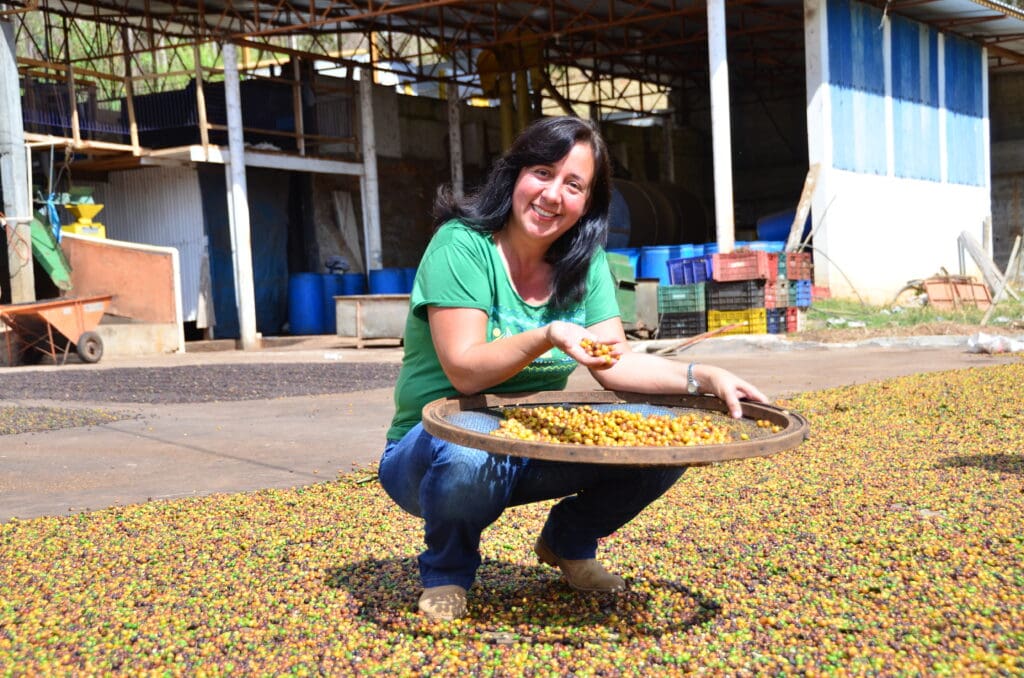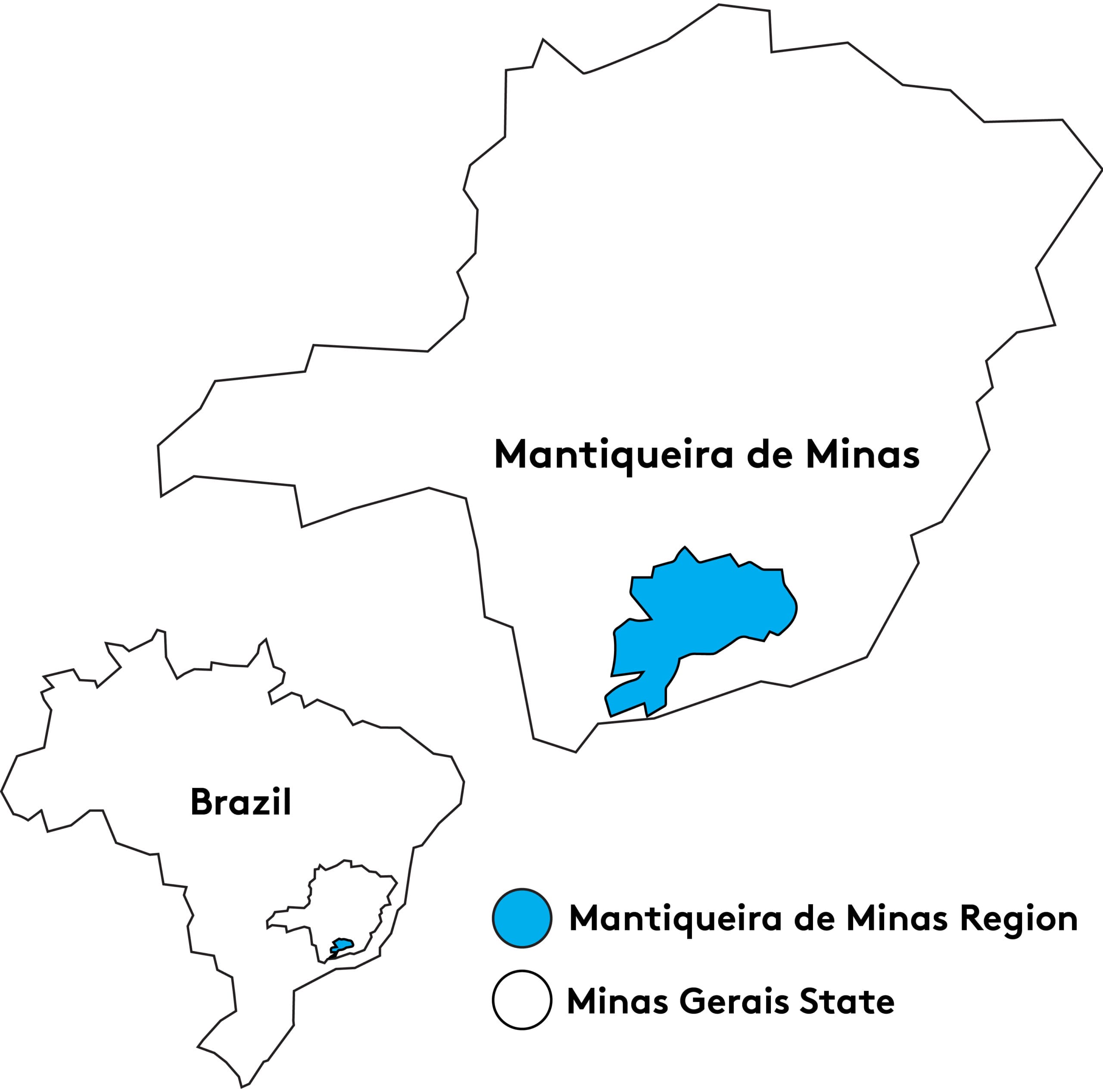Producer Cristiana Bustamante is the fourth generation of coffee farmers in the Fortes Bustamante family. A veterinarian by training, she gave up her initial profession to dedicate herself entirely to the family company, Fortes Bustamante Agronegócios, where she has been working for more than 20 years.
Her passion for coffee was invigorated in 2008 when her father, Antonio Fortes Bustamante, decided to begin producing specialty coffee. It was at that time that Cristiana began taking courses about all of the processes of coffee production. She says, “After I learned to really enjoy the whole process, I understood why coffee is a culture that passes from generation to generation in our family, it is contagious and very pleasant to have proof of our dedication when it comes to ascertaining the quality of the product. There is nothing better! ”
Fazenda Paraíso is a property full of native forest and crystal clear water sources in Serra da Pedra Branca in the Conceição das Pedras municipality in Mantiqueira de Minas. The farm enjoys favorable conditions for coffee cultivation, including a temperate climate and high altitude up to 1530 meters. Coffee is planted on 27.26 hectares of the total 233 hectare property and includes Yellow Bourbon, Yellow Catuai, Red Catuai, and Catuai 62 varieties.
Paraíso’s coffee has already received numerous awards, among them several classifications for the BSCA final, reaching second place in 2013, finalist of the Três Florada Award Winning competition from Três Corações, and second place of the Amam Competition from Minasul in 2019. This particular lot of coffee was one of the top 10 entries in a competition held by AMECAFÉ Mantiqueira (The Association of Coffee Women Entrepreneurs in Serra da Mantiqueira) in October 2020. The association was founded in 2017 and now includes 130 producers, providing professional development and other events for women producers in the region.
Today, the biggest challenge is to maintain the quality standard of the farm. Cristiana says, “Each year we try to do better than in the last harvest. The specialty coffee market is getting very competitive, we cannot fool around. That is why we are always taking courses, getting to know new technologies and making many improvements in the process, all in order to maintain the standard and name, won with so much sacrifice by past generations, and that we are continuing. By respecting and considering our ancestors, we want to do even better.”
As for her involvement in AMECAFÉ, she says, “Being part of AMECAFÉ is something that greatly strengthens the purpose of women coffee farmers who are emerging in the market. I am very grateful to be part of an association where we find so many producers that speak the same language as us. My father always encouraged me and my sisters to be brave and to face prejudices in this profession that, until recently, was occupied only by the male universe, so we never had any problems with that, as we have accompanied him for many years in lectures, courses and even on a daily basis on the farm. It was great to meet other women who live the same reality as us. It is certainly making a difference in our improvement as producers and strengthening the coffee sector.”
This lot of Yellow Bourbon coffee underwent Natural processing. Yellow Bourbon was discovered in 1930 on a Red Bourbon farm in Pederneiras, São Paulo, Brazil. It’s unclear if Yellow Bourbon developed as a natural mutation of Red Bourbon, or if it was a naturally occurring cross between Red Bourbon and Yellow Botucatu, a mutation of Typica discovered in 1871 in Botucatu, São Paulo. Yellow Bourbon is known for good cup quality and relatively high productivity, and has come back into fashion as a cultivated variety across Brazil after its initial novelty wore off in the mid 1900’s. Instituto Agronomico (IAC) of Sao Paulo State in Campinas, Brazil renewed research efforts of the variety in 2005, seeking to highlight the plant’s robust nature and high cup potential.
This coffee was one of the top 6 entries in the Natural/Pulped Natural Coffee category of a competition held by AMECAFÉ Mantiqueira (The Association of Coffee Women Entrepreneurs in Serra da Mantiqueira) in October 2022. The association was founded in 2017 and now includes 130 producers, providing professional development and other events for women producers in the region.



